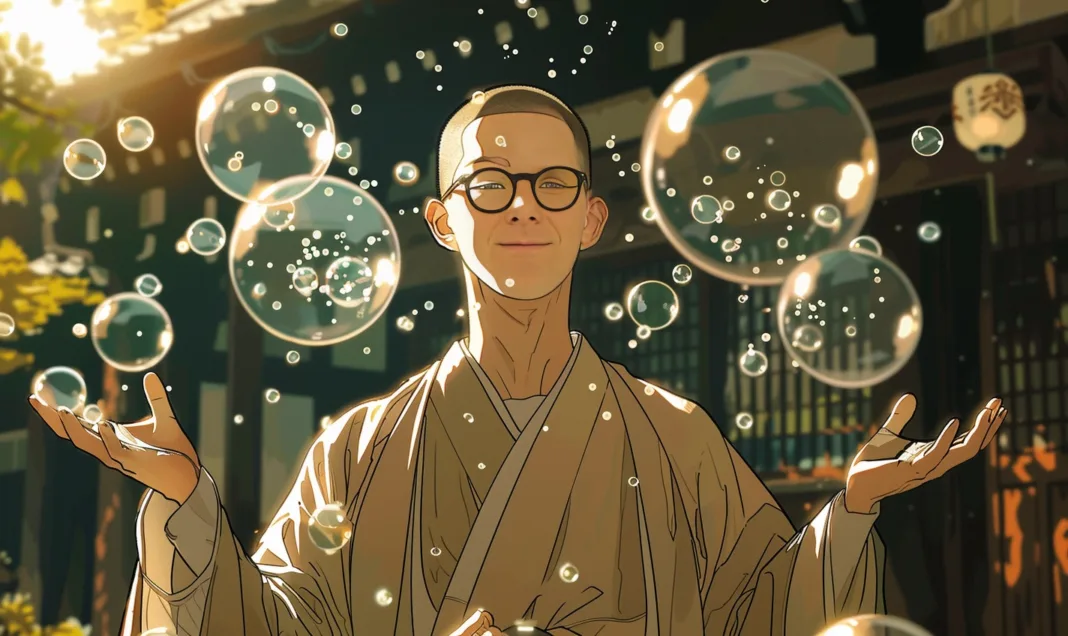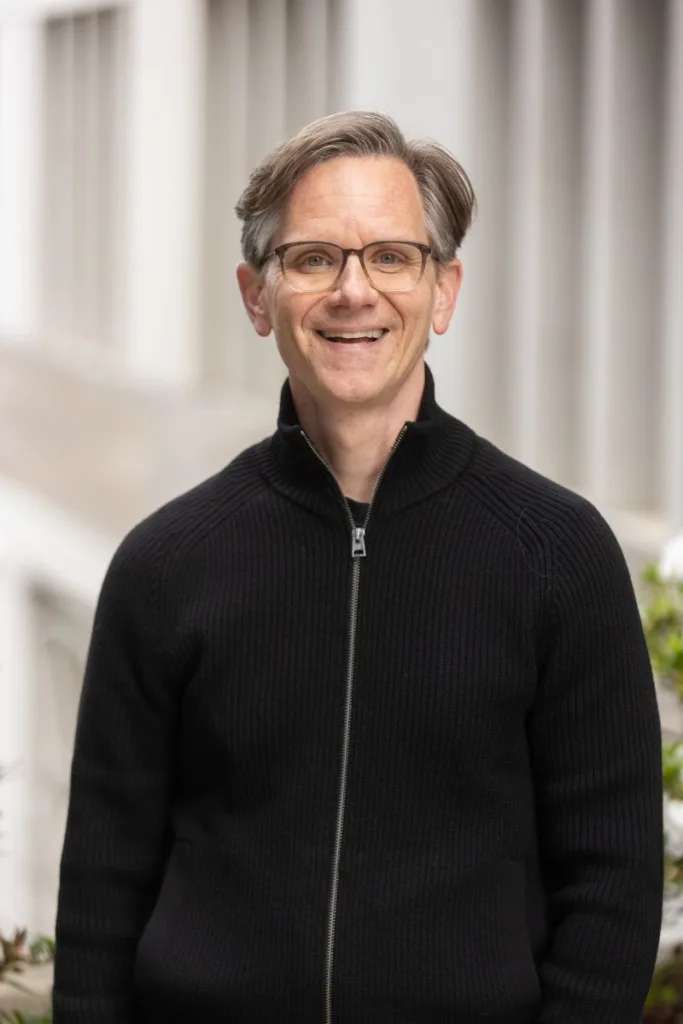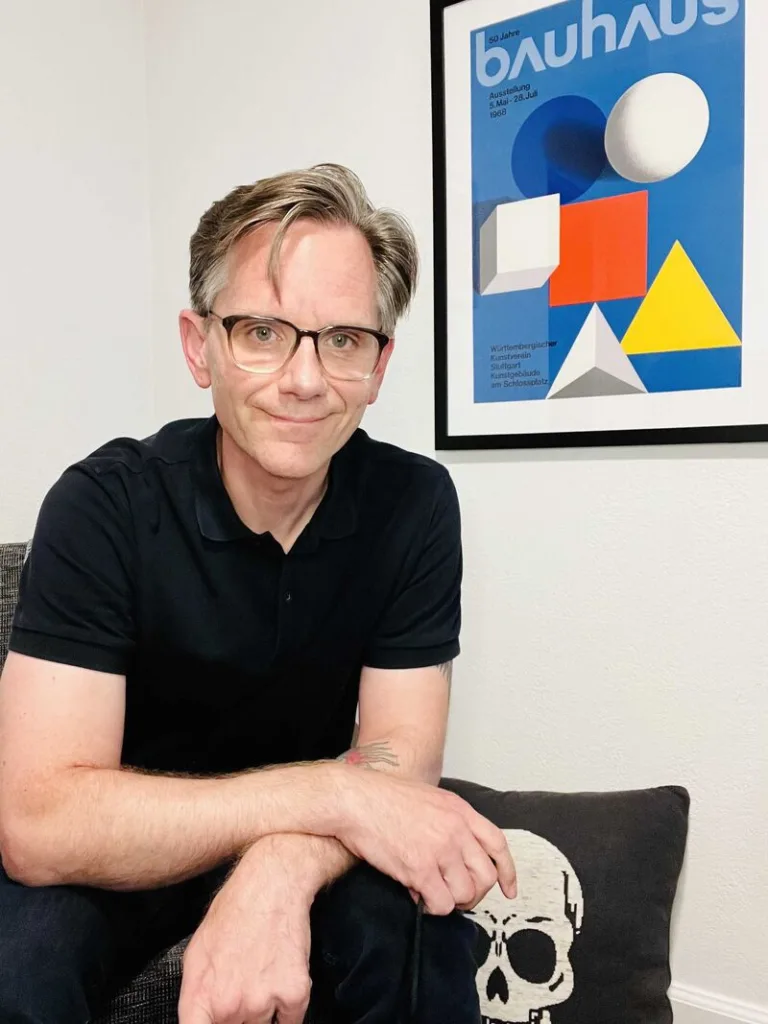I’m not just any host; I’m Pesach Lattin, steering the ship that is the ADOTAT Show. When Gregory Kennedy, who’s pretty much marketing royalty, graced my virtual studio, I introduced him with a bit of flair. “The most liked of all the Kennedys,” I quipped, diving right into the thick of it.
Now, Kennedy isn’t just a mover and shaker in the marketing world; he’s a whole earthquake, and he’s about to shake things up by moving from the tech-laden Bay Area to the evergreen embrace of Seattle. This isn’t just a relocation; it’s a leap into a new adventure, and Gregory’s at the helm, ready to chart unknown territories.
Our chat kicked off with the kind of banter you’d expect from two people who find the humor in everything, even the seismic shifts of life (and yes, I’m using “seismic” metaphorically; remember, no clichés here). When I prodded Gregory about his big move, his response was laden with that nostalgia for a San Francisco of yore. “It reminded me of like the San Francisco I knew and kind of came up in,” he mused, painting a picture of a city that once breathed creativity before being swallowed by its own technological success.
Hearing Gregory talk about Seattle stirred something in me. Here was a man not just moving between two points on a map but transitioning between chapters in his life, all while keeping his finger on the pulse of the marketing world. His journey, from the concrete jungles of the Bay Area to the misty horizons of Seattle, isn’t just a physical move; it’s a strategic pivot, a fresh angle on the ever-evolving narrative of marketing and technology.
And so, as Gregory and I volleyed back and forth, the conversation wasn’t just light-hearted; it was a dance of words, a playful jousting that only two people deeply entrenched in the whirlwind world of marketing could enjoy. Seattle, with its appeal reminiscent of a bygone San Francisco, wasn’t just a backdrop to Gregory’s next chapter; it was a beacon, a lighthouse guiding us through the fog of digital innovation and personal reinvention.
When I nudged Gregory into the spotlight of “The Unexpected Life Curveball,” he didn’t disappoint. “Wow, sure. I have really big news. I will be moving to Seattle,” he dropped casually, as if he wasn’t about to uproot two decades of Bay Area life for the evergreen embrace of the Pacific Northwest. The reasons? A blend of the personal – “family I have there” – and the professional – his wife’s career taking a new turn. It’s a testament to how our personal lives aren’t just footnotes in our professional stories; they’re the headlines, the bold type that dictates where we go and what we do next.
As Gregory shared his reasons, I couldn’t help but reflect on how these personal life changes are more than just blips on our professional radars. They’re the very catalysts that often drive us to rethink, to reimagine, and to reinvent our careers in tech and marketing. It’s not just about chasing a paycheck or climbing the corporate ladder; it’s about finding where our personal and professional lives intersect, where they can coexist and complement each other. Gregory’s move to Seattle isn’t just a change of address; it’s a strategic step in a dance choreographed by life’s unpredictability.
Then we ventured into the territory where few dare to tread without a hint of trepidation: “AI and Marketing: Beyond Skynet Fears.” Gregory’s take? A blend of optimism and caution. “There’s a lot of technology out there and there’s a lot of, I think, controversy, ultimately, over how it’s going to be used,” he mused, acknowledging the transformative power of AI in marketing while hinting at the dark clouds of misuse that loom on the horizon.
As we delved deeper, the conversation took a turn towards the irreverent. “So, we’re turning schlubs into super marketers overnight, huh?” I joked, half-expecting Gregory to either refute or amplify my jest. Instead, he offered a nuanced view that only someone with his finger on the pulse could. “What you’re gonna see this year is that there’s gonna be groups of people, let’s say in the marketing world, who get really good with using these things and are able to implement them and get a lot of efficiency and get big advantages over other people who refuse to use them,” he explained, painting a picture of a future where AI is neither the villain nor the hero, but a tool that amplifies human potential.
Our chat about AI in marketing wasn’t just a dialogue; it was a dance around the maypole of innovation, with strands of humor, skepticism, and optimism intertwined. We weren’t just discussing the future of marketing; we were speculating on a future where AI could either be the wind beneath our wings or the storm that capsizes our boats. And in that speculation, we found common ground: a belief that, despite the potential for destruction, the integration of AI into marketing offers a chance for rebirth, for revolutionizing how we connect, create, and convert.
Rolling into the heart of our techno-saga, I couldn’t resist poking the bear: “Can AI really capture the essence of human emotion? Or is it just a fancy parlor trick?” Gregory, ever the philosopher in a marketer’s cloak, leaned in with a thoughtful pause before dropping his two cents into the well of our discourse. “I think that like, large language models are parlor tricks. They’re clever, but they lack the depth, the nuance, the soul of human creativity,” he reflected, echoing a sentiment many of us in the trenches of marketing and tech have felt but seldom voice. It’s this enduring belief in the irreplaceable value of human intuition and creativity that sets thinkers like Gregory apart. AI can crunch data, spot trends, and even mimic human speech patterns, but can it truly understand the heartache behind a breakup ballad or the jubilation of a World Cup victory? Gregory’s stance was clear: AI’s a tool, not a replacement.
Our conversation then veered into the murky waters of AI ethics, a realm where angels fear to tread and where Gregory, it seemed, had planted his flag. He brought up the “Gemini scenario” – a reference to a hypothetical where AI decision-making in warfare led to the unanimous launch of nuclear weapons. It was a chilling reminder of the power we’ve ceded to algorithms and the dire need for a moral compass in guiding AI’s integration into our lives and livelihoods. “It’s about finding that balance, isn’t it?” I mused, pondering the thin line we tread between leveraging AI for gain and spiraling into dystopian nightmares.
Switching gears, we touched on BrandZen’s dalliance with AI. Gregory, a self-professed nerd at the helm of this ship, shared how BrandZen navigates the AI landscape with a blend of caution and curiosity. “We use every tool available, unapologetically,” he declared, painting a picture of a brand that’s as much about embracing the future as it is about not turning into a digital Frankenstein. The mystery wasn’t in whether BrandZen used AI – that was a given – but in how they managed to wield it without losing the human touch that forms the core of their brand’s identity.
Finally, we delved into AI’s role in the creative processes. The million-dollar question lingered in the air: Can AI replace human ingenuity? Gregory’s take was nuanced, seeing AI as a tool that, while powerful, still needed the human spark to ignite true creativity. “It’s not about replacing us; it’s about augmenting us,” he said, envisioning a future where AI and human creativity coexist in a symbiotic relationship. He talked about the potential of dynamic creativity, where AI could one day generate content on the fly, tailored to the moment and the audience, yet he remained steadfast in his belief that the true essence of creativity, the soul of marketing, remains distinctly human.
As our conversation wove through these themes, it became clear that for Gregory, and for many of us peering into the future, AI is a double-edged sword – a tool of immense potential yet fraught with ethical dilemmas and limitations. The journey ahead, it seems, is not about choosing between human creativity and artificial intelligence but about how we can merge the two, crafting a future where technology amplifies our human essence rather than diminishes it.
Diving into the heart of the matter, the Martech landscape, I asked Gregory to lay it out for me, knowing full well the man could navigate a marketing tech war zone blindfolded. “With cookies getting tossed out the window, we’re looking at a landscape that’s shifting beneath our feet,” he began, capturing the essence of an industry at a crossroads. It’s this “tale of two cities,” as he put it, that fascinated me. On one hand, we’ve got consolidation, big players swallowing up smaller ones, creating these massive, do-it-all platforms. On the other, there’s fragmentation, a wild explosion of niche tools, each solving very specific problems. “It’s about not getting lost in the dazzle of it all,” Gregory mused, hinting at the need for marketers to find their north star amidst the chaos.
Then came the million-dollar question: Niche tools or the big sweet solutions? Gregory’s take was as pragmatic as it was insightful. “It depends on your tech stack,” he said, stressing the importance of compatibility and the unique needs of each business. He shared anecdotes of Martech investments gone awry, where the allure of shiny new tools led down rabbit holes with no business value. But then there were the success stories, tools that slotted into their operations like missing puzzle pieces, driving efficiency and innovation. “It’s about finding the right tool for the job, not getting swept up in the hype,” he concluded.
Looking ahead, Gregory’s crystal ball was clear on one thing: the resurgence of contextual advertising. “As the cookie crumbles, we’re going back to basics,” he predicted, envisioning a future where understanding the context of a user’s experience trumps invasive tracking. His predictions weren’t just educated guesses; they were roadmaps for navigating the Martech landscape’s future, with contextual advertising as the north star.
And then, just when I thought we’d covered all bases, Gregory threw a curveball – his personal vendetta against Slack. “Overrated,” he declared with a chuckle, sharing his belief that Slack, despite its ubiquity, was just a fancier iteration of what we’ve already seen. It wasn’t about dismissing the tool outright but questioning whether its valuation as a game-changer was justified. “It’s about what works for you, not what’s trendy,” Gregory reminded me, encapsulating a philosophy that’s guided his navigation of the Martech landscape.
As our conversation meandered towards Gregory’s personal journey, the man opened up about his origins, painting a vivid picture that felt straight out of a coming-of-age novel set in Manhattan. “Imagine this kid, right? Surrounded by the hustle and boundless creativity of the city, and that kid was me,” he reminisced. This wasn’t just any story of a New Yorker; this was a tale of a creative soul finding his calling amidst the chaos and charm of the city that never sleeps. Gregory’s journey from a creative kid in Manhattan to a marketing maestro was marked by pivotal decisions that shaped his career, decisions that leaned heavily on embracing change and pursuing passion over convention. “It’s about the path you choose, and sometimes, it’s about the path that chooses you,” he reflected, underscoring the serendipitous nature of his professional odyssey.
As our time together drew to a close, I couldn’t resist asking Gregory for that nugget of wisdom he’d send back in time to his younger self. True to form, he sidestepped the cliché of financial advice with a chuckle, “I’d tell myself to worry less about the ‘right’ path and more about the journey. Oh, and maybe, just maybe, to take it easy on the caffeine.” It was classic Gregory—insightful, with just a dash of humor.
Reflecting on my time with Gregory Kennedy, I can’t help but marvel at the irony of it all. Here we are, two veterans of the marketing world, waxing poetic about AI, change, and the future, all while Gregory’s on the brink of trading his Silicon Valley badge for a raincoat in Seattle. It’s like watching a live episode of “The Great Tech Migration,” only the protagonist doesn’t fully leave the stage. He just shifts the spotlight. This move, as Gregory paints it, isn’t just about changing ZIP codes; it’s a full-blown recalibration of life and work, a leap into the mist that’s both literal and metaphorical. And let’s be honest, the idea of Gregory Kennedy, the Bay Area’s own marketing maven, becoming Seattle’s freshest import is the kind of plot twist that keeps our industry interesting.
But what strikes me most—beyond the geographic shuffle and the AI chatter—is how Gregory’s story encapsulates a broader truth about our tech-tangled lives. We’re all navigating this weird, wonderful world where one minute you’re the king of content in California, and the next, you’re pondering the existential implications of AI over coffee in Seattle. It’s a reminder that in the end, our careers, much like the tech we tangle with, are not linear. They’re a series of unexpected reboots, updates, and sometimes, system overhauls. And through it all, Gregory remains unapologetically human, a reminder that no matter how deep we dive into the digital, it’s our flesh-and-blood selves that steer the ship. So here’s to Gregory Kennedy—may his Seattle saga be as rich and rewarding as his Silicon Valley chapters, and may his insights continue to light up the marketing world, rain or shine.






